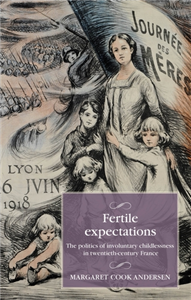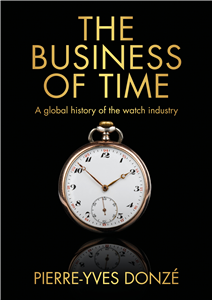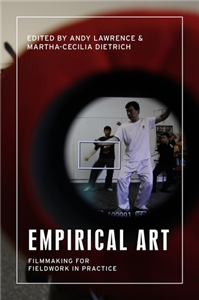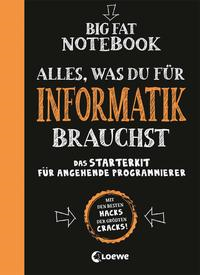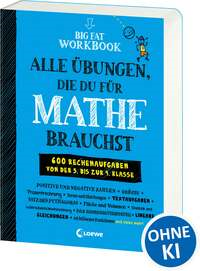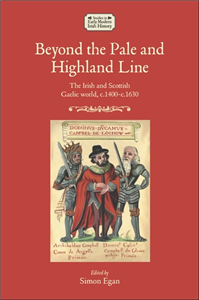Your Search Results
-
Organisation for Researching and Composing University Textbooks in the Humanities (SAMT)
Over 140 titles of books in cooperation with universities and research centers in countries in Asia and Europe
View Rights Portal
-
Promoted ContentMay 2021
Mocked, Battled, Desired
With organic pioneer Ulrich Walter through five decades
by Heike Leitschuh
The small district town of Diepholz lies between Bremen, Oldenburg and Osnabrück, and no one could possibly describe it as “well-known”. Quite unlike the Lebensbaum company, which was founded here by Ulrich Walter in 1979. Those who eat mindfully will probably also be familiar with the coffees, teas and spices of this pioneering organic company, which frequently and repeatedly receives a range of awards for sustainability and now employs around 200 people. Heike Leitschuh draws a lifelike portrait of an entrepreneur of the organic founding generation who turned a small shop into a successful medium-sized company, played a key role in shaping the organic industry, and has offered perspectives for its future.
-
Promoted Content2022
A Workbook of Chemistry for Students of Medicine and Biology
Introduction to the material covered in standard examinations
by Dirk Röbke and Udo Wolfgramm
Rote learning is one way to pass examinations, but really understanding the subject is even better. Most textbooks are limited to presenting facts without helping the reader review and practice. This workbook fills the gap with more than 1,000 sample examination questions from general, inorganic and organic chemistry. With it, students can practice and deepen what they have learned from textbooks. The problems can be solved without aids, and solutions are provided with detailed explanations. The workbook enjoys great popularity after helping countless students study successfully. From the contents: atomic structure and chemical bonds: noble gas configuration, electronegativity, hybridization, intermolecular interactions | nomenclature and structural formulas of inorganic and organic compounds | chemical equations: double transformations, acid-base reactions, complexes | quantities and concentrations of substance: gravimetry, titrations, percent by mass and by volume | law of mass action | acids, bases and salts: calculating pH value, titration curves, buffers, solubility product | redox reactions and oxidation numbers, Nernst equation | complex compounds | configurational and conformational isomerism | inductive and mesomeric effects | substitution, addition, elimination | aromatic compounds: reactions and second substitution | natural products: carbohydrates, lipids, amino acids, peptides | carbonyl reactions: carboxylic acids, aldehydes, ketones
-
 Trusted Partner
Humanities & Social SciencesMay 2025
Trusted Partner
Humanities & Social SciencesMay 2025Fertile expectations
The politics of involuntary childlessness in twentieth-century France
by Margaret Cook Andersen
An engaging history of motherhood, demography, and infertility in twentieth-century France, this book explores fraught political and cultural meanings attached to the notion of an "ideal" family size. When statistics revealed a sustained drop in France's birthrate, pronatalist activists pushed for financial benefits, propaganda, and punitive measures to counter declining fertility. Situating infertility within this history, the author details innovations in fertility medicine, cultural awareness of artificial insemination, and changing laws on child adoption. These practices offered new ways of responding to infertility and formed part of a growing expectation of being able to control one's fertility and family size. This book presents the political and cultural context for understanding why private questions about when to start a family, how many children to have, and how to cope with involuntary childlessness, evolved and became part of state demographic policies.
-
 Trusted Partner
Business, Economics & LawJuly 2024
Trusted Partner
Business, Economics & LawJuly 2024The business of time
A global history of the watch industry
by Pierre-Yves Donzé
The business of time presents a comprehensive history of the global watch industry from the mid-nineteenth century to the present. Watch production in the twenty-first century is concentrated in three countries: Switzerland, Japan and China. The industry is dominated by a dozen or so large companies, including the Swatch Group, Richemont, LVMH, Seiko and Fossil. But a hundred years ago the picture was dramatically different. Over the course of a century, Great Britain, France, the United States and Russia saw the manufacture of watches disappear from their territory. At the same time, Hong Kong went from being a subcontractor of watch components to an intermediary between Chinese factories and the world market. Revealing the conditions that drove the spread of watch production around the globe, The business of time explains how multinationals emerged to dominate the industry and highlights how Swiss companies were able to establish themselves as the undisputed leader in luxury watches.
-
 Trusted Partner
Humanities & Social SciencesJuly 2025
Trusted Partner
Humanities & Social SciencesJuly 2025Empirical art
Filmmaking for fieldwork in practice
by Andy Lawrence, Martha-Cecilia Dietrich
Empirical art: Filmmaking for fieldwork in practice is an insightful exploration of what the craft of filmmaking brings to social science research. Providing creative avenues on how to narrate encounters, relationships, and experiences during fieldwork, this comprehensive volume offers a rich tapestry of theoretical explorations and explorative methodologies. Skilfully connecting the worlds of ethnography, art and cinema, the contributors in this book act as a compass for filmmakers and researchers venturing to use a camera and microphone to relate and narrate their research collaborations and fieldsites. Drawing from the authors' extensive experience in disciplines like social anthropology, environmental humanities, and political science, "Empirical Art" breaks down the intricate process of crafting ethnographic films that departs from the researcher's subjectivity. Covering aspects of filmmaking from conceptualisation to production and distribution, readers are equipped with a treasure trove of collaborative techniques, innovative approaches, and ethical considerations necessary to generate and examine storytelling practices in contemporary fields of study. The authors discuss the significance of the multiple roles that technologies of filmmaking play in reflecting on cultural practices, social dynamics, and (beyond) human storytelling and their transformative potentials. Whether a seasoned filmmaker, an aspiring ethnographer, or an academic seeking new dimensions for their research, Empirical Art serves as a guide to integrating visual storytelling, cinema craft and empirical research.
-
 Trusted Partner
September 2021
Trusted Partner
September 2021Big Fat Notebook - Alles, was du für Informatik brauchst
Das Starterkit für angehende Programmierer - Nachschlagewerk und Übungsbuch für Schule und Studium
by Grant Smith, Chris Pearce, Christian Bubenheim, Alexander Ritter Thern, Miriam Zimmermann, Philipp Thern
Nur Fragezeichen im Kopf? Diese Bücher schaffen Abhilfe! Denn sie enthalten alles rund um die wichtigsten Schulfächer von der 5. bis zur 9. Klasse – und darüber hinaus! Knapp und verständlich werden die einzelnen Themen zusammengefasst und einprägsam vermittelt. Die Scribble-Optik lockert das Ganze auf und sorgt für einen modernen Look. Aufgabenseiten bieten außerdem die Möglichkeit, das Gelernte noch einmal zu überprüfen. Vom Fünftklässler bis zum Informatik-Noob – die Notebooks sind der perfekte Begleiter! Das neue Big Fat Notebook ist genauso dick, genauso bunt und genauso vollgepackt mit Wissen wie seine Vorgänger – diesmal zu den spannenden Themen Informatik und Programmieren. Wie gewohnt wartet es nicht nur mit kurzen, leicht verständlichen Definitionen und Erklärungen auf, sondern dient ebenfalls als modernes Notizbuch. Jedes Kapitel schließt mit Übungsseiten, mit deren Hilfe die Lektionen wiederholt werden können. Ab jetzt sind Programmiersprachen keine Fremdsprachen mehr!
-
 Trusted Partner
Humanities & Social SciencesJune 2011
Trusted Partner
Humanities & Social SciencesJune 2011Bourgeois consumption
Food, space and identity in London and Paris, 1850–1914
by Rachel Rich
Bourgeois Consumption looks at how the middle classes in late nineteenth-century London and Paris used food and dining as forms of social expression and identity. This engaging treatise about how class and gender informed people's eating habits focuses on the complex interactions between bodies, ritual and identity. Forgoing the traditional food history territory of recipes and ingredients in favor of how people ate in different circles, Bourgeois Consumption explores the role of real and imagined meals in shaping Victorian lives. The perception of the middle classes as rigid and upright, found in the extensive pages of their etiquette books, is contrasted with a more flexible and spontaneous bourgeoisie, gleaned from the pages of their own colorful memoirs, diaries and letters, leading us on a lively journey into eating spaces, mealtimes, manners, and social interactions between diners. Further, contrasting Paris with London reveals some of the ways each city shaped its inhabitants but, more surprisingly, throws up a range of similarities that suggest the middle classes were, in fact, a transnational class. Rachel Rich's work will be of interest to anyone intrigued by the history of food, consumption and leisure, as well as to a broader audience curious about how the Victorian middle classes distinguished themselves through daily life and manners. ;
-
 Trusted Partner
MedicineAugust 2016
Trusted Partner
MedicineAugust 2016Evidence-based Nursing and Caring
by Johann Behrens, Gero Langer
Evidence-based-nursing and caring, a method that relies on scientifically verifiable data from an outside perspective (“external evidence”) as well as the individual needs of those cared for as well as the caretakers (“internal evidence”). This title offers a detailed insight into external and internal evidence in nursing care and shows in a 6-step-approach how to • make shared decision • analyse and describe problems • find literature and relevant studies • critically evaluate nursing studies and their quality • change nursing practice and • evaluate nursing care. Target Group: Nursing Students, Nurse Educators.
-
 Trusted Partner
Humanities & Social SciencesJanuary 2023
Trusted Partner
Humanities & Social SciencesJanuary 2023Knowledge production in higher education
by Michelle Pace, Jan Claudius Völkel
-
 Trusted Partner
Humanities & Social SciencesJanuary 2020
Trusted Partner
Humanities & Social SciencesJanuary 2020Communities and knowledge production in archaeology
by Julia Roberts, Kathleen Sheppard, Ulf Hansson, Jonathan R. Trigg, Joshua Pollard
-
 Trusted Partner
Trusted Partner
-
 Trusted Partner
Trusted Partner
-
 Trusted Partner
January 2024
Trusted Partner
January 2024Big Fat Workbook - Alle Übungen, die du für Mathe brauchst
600 Rechenaufgaben von der 5. bis zur 9. Klasse - Ein Übungsbuch, das Spaß macht
by Christian Bubenheim, Miriam Zimmermann, Alexander Ritter Thern
Das Übungsbuch mit Gute-Noten-Garantie Das Big Fat Workbook hält, was es verspricht: Neben Definitionen, Lerntipps, leicht verständlichen Erklärungen und Lösungen umfasst das extradicke Übungsbuch im Big Fat Notebook-Stil sage und schreibe 600 Aufgaben zu den wichtigsten Mathethemen von der fünften bis zur neunten Klasse. Neben Übungen zu natürlichen, ganzen und rationalen Zahlen, zu Bruch- und Prozentrechnung, Flächeninhalt und Umfang können Schüler*innen der Mittelstufe Textaufgaben lösen, den Satz des Pythagoras durchdringen und die Stochastik – mit großer Wahrscheinlichkeit – meistern. Ob zur Wiederholung, Auffrischung oder als Training: Das Big Fat Workbook ist die perfekte Ergänzung zum Big Fat Notebook und kommt mit Gute-Noten-Garantie!
-
 Trusted Partner
Trusted Partner
-
 Trusted Partner
Trusted Partner
-
 Trusted Partner
Trusted Partner
-
 Trusted Partner
Trusted Partner
-
 Trusted Partner
Trusted Partner
-
 Trusted Partner
Trusted Partner
-
 Trusted Partner
Humanities & Social SciencesApril 2025
Trusted Partner
Humanities & Social SciencesApril 2025Beyond the Pale and Highland Line
The Irish and Scottish Gaelic world
by Simon Egan
This book offers important new insights into the history and culture of the Gaelic-speaking world from the mid-fifteenth century through to the reign of James VI and I. Throughout this period, the reach of the English and Scottish crowns within these western regions was limited. The initiative lay with local communities and royal power was contingent upon negotiating with well-established and largely autonomous aristocratic lineages. Moreover, events within this western world could exert a powerful, often unpredictable, influence upon the affairs of the wider archipelago. Using a series of case studies, this collection examines the evolving relationship between Ireland and Scotland in rich detail. It demonstrates how this world interacted with the encroaching English and Scottish states and underlines the importance of paying closer attention to this neglected area of Irish and British history.








